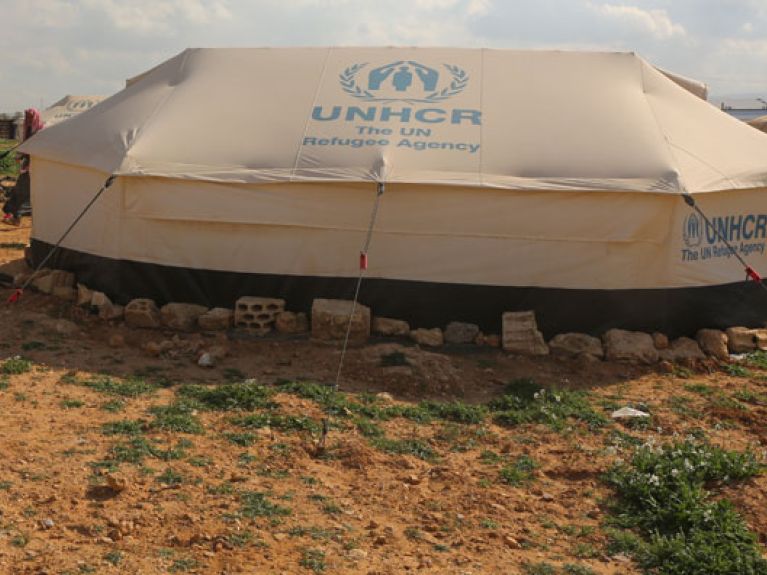“I expect important decisions for the future to be taken in Germany”
Katharina Lumpp, UNHCR Representative for Germany, on the refugee crisis and Germany’s role.

Ms Lumpp, you took up your new position as the UNHCR’s Representative for Germany in December 2015 – at a difficult time both for the international community and for Germany in view of the refugee issue. What are your most important tasks and goals?
To continue and further strengthen the tried-and-tested cooperation between the UNHCR and Germany at a difficult time in order to face the challenges of the future. Important partners in this cooperation are the Federal Government, various authorities at the federal and state level, the Bundestag (German parliament), the judiciary, committed members of civil society and the refugees themselves. In Germany, in Europe and worldwide, there are currently new challenges and issues concerning the international protection of refugees, particularly with regard to greater international solidarity and a better distribution of responsibilities. I expect important decisions for the future to be taken in Germany. It is therefore important to participate actively and to be heard in the debate here.
You previously worked for the United Nations Refugee Agency in the Middle East. What experiences have you had in the past that could be particularly helpful for you in your new task?
Perhaps experiencing how refugee protection can be organised in a very practical way with the people affected – involving the local authorities and above all the refugees and asylum seekers themselves – and that under difficult circumstances, with huge numbers of vulnerable people and high expectations. Or experiencing how procedures – including registration, refugee-recognition processes, resettlement in third countries – were successfully organised for large numbers of people and, particularly in the Syria crisis, made more and more efficient. Above all, I hope my experience of both the refugees’ countries of origin and the initial reception countries will enable me to contribute an international perspective to the discussion in Germany.
What needs to be done to improve what is in some ways a catastrophic situation in Europe? Are there any grounds at all to be optimistic?
Europe must find a common approach in the sense of a European refugee-protection system that goes beyond the existing European asylum system. In my opinion, this requires a fair and solidarity-based balance in the division of responsibilities within Europe and beyond, also with a view to other regions of the world where the largest numbers of refugees are still found, despite the current developments.
What contribution is Germany making to improve the situation?
Germany is among the world’s top donors in the field of humanitarian relief; it is now the third-largest donor after the USA and the UK. Germany is strongly supporting political initiatives to resolve conflicts that have led to huge floods of refugees. Furthermore, Germany is the main host country for refugees in Europe; it has a long tradition of asylum and a highly active civil society. The solidarity and commitment shown by so many people towards the incoming refugees is exemplary.
In what areas are adjustments needed?
It’s too early to make a judgement on this at present. But certainly Germany is contributing far more internationally than in the past in the field of refugee protection and relief. In my view, this is a good development.
Germany’s refugee policy has met with criticism in some neighbouring European countries. What is your opinion on this?
Germany has clearly recognised that the current and future challenges can only be addressed by acting together. The refugee flows cannot be stopped while extremely brutal conflicts are being fought out in these people’s countries of origin and people are exposed to persecution. Germany has taken on an exemplary humanitarian role in the crisis. To criticise this country, of all countries, which has been practising and implementing the common values of European refugee protection, is in my view a regrettable sign that the harmonisation of European asylum law, which was begun nearly two decades ago, has not yet arrived in the realm of practical policy. ▪
KATHARINA LUMPP
UNHCR Representative for Germany

